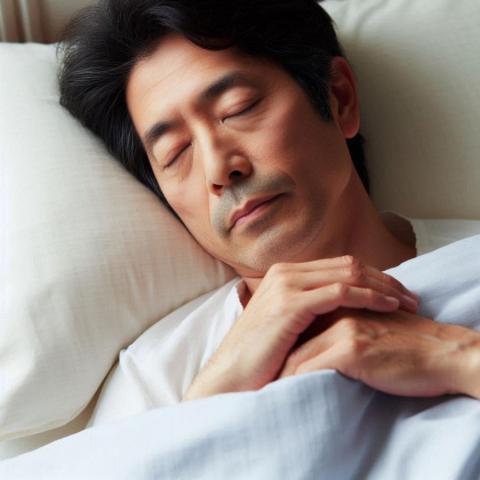
Tips for a good night's sleep:
1. Establish a Consistent Sleep Schedule
-
Fixed Bedtime and Wake Time: Go to bed and wake up at the same time every day, even on weekends. This helps regulate your body's internal clock.
-
Avoid Long Naps: If you nap, keep it under 30 minutes and avoid napping late in the afternoon.
2. Create a Relaxing Bedtime Routine
-
Wind Down: Spend the last 30-60 minutes before bed doing calming activities like reading, listening to soothing music, or taking a warm bath.
-
Dim Lights: Lower the lighting in your home as bedtime approaches to signal to your body that it's time to sleep.
3. Optimize Your Sleep Environment
-
Cool and Dark: Keep your bedroom cool (around 60-67°F or 15-19°C) and as dark as possible. Use blackout curtains or a sleep mask if needed.
-
Quiet: Minimize noise with earplugs, a white noise machine, or apps that play soothing sounds.
-
Comfortable Bed: Invest in a good mattress and pillows. Ensure your bed is comfortable and supportive.
4. Manage Your Diet
-
Avoid Heavy Meals Before Bed: Large, rich meals can cause discomfort and indigestion, making it hard to sleep.
-
Limit Stimulants: Avoid caffeine and nicotine late in the day as they can disrupt your sleep cycle.
-
Avoid Alcohol Before Bed: While it may make you feel sleepy initially, alcohol can interfere with your sleep cycle, reducing overall sleep quality.
5. Limit Screen Time
-
Reduce Blue Light Exposure: Blue light from screens (phones, tablets, computers) can interfere with your body’s ability to produce melatonin, a hormone that regulates sleep. Use blue light filters or apps to reduce exposure if you must use devices.
-
Screen-Free Time: Aim to stop using screens at least one hour before bed.
6. Incorporate Regular Physical Activity
-
Exercise: Regular physical activity can help you fall asleep faster and enjoy deeper sleep. However, avoid vigorous exercise close to bedtime as it can have the opposite effect.
7. Manage Stress and Anxiety
-
Relaxation Techniques: Engage in stress-reducing practices such as meditation, deep breathing exercises, or gentle yoga.
-
Journaling: Write down worries or to-do lists before bed to clear your mind.
8. Regulate Light Exposure
-
Daytime Light: Spend time outside in natural light during the day. This helps regulate your circadian rhythm.
-
Morning Sun: Try to get morning sunlight exposure to help wake you up and keep your sleep cycle on track.
9. Be Mindful of Your Sleep Cycles
-
Sleep Cycle Awareness: Understand that sleep cycles typically last about 90 minutes. Waking up at the end of a cycle can make you feel more refreshed than if you wake up in the middle of one.
-
Sleep Tracker: Consider using a sleep tracker to understand your sleep patterns and identify areas for improvement.
10. Seek Professional Help if Needed
-
Persistent Issues: If you have chronic sleep problems, consider consulting a healthcare provider. Conditions like insomnia, sleep apnea, or restless legs syndrome may require medical intervention.
Bonus Tips:
-
Avoid Clock Watching: Constantly checking the time can increase anxiety and make it harder to fall asleep.
-
Reserve Bed for Sleep: Use your bed only for sleep and intimacy to strengthen the mental association between bed and sleep.




















